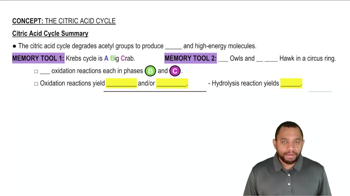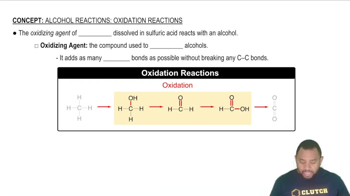Match the following ATP yields to reactions a to g:
1.5 ATP 2.5 ATP 7 ATP 10 ATP
12 ATP 32 ATP 36 ATP
d. Acetyl CoA goes through one turn of the citric acid cycle.
 Verified step by step guidance
Verified step by step guidance Verified video answer for a similar problem:
Verified video answer for a similar problem:



 :50m
:50mMaster Phase A - Citrate Formation Concept 1 with a bite sized video explanation from Jules
Start learning